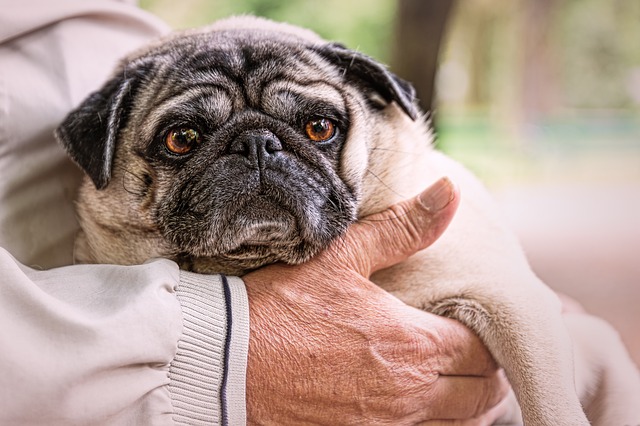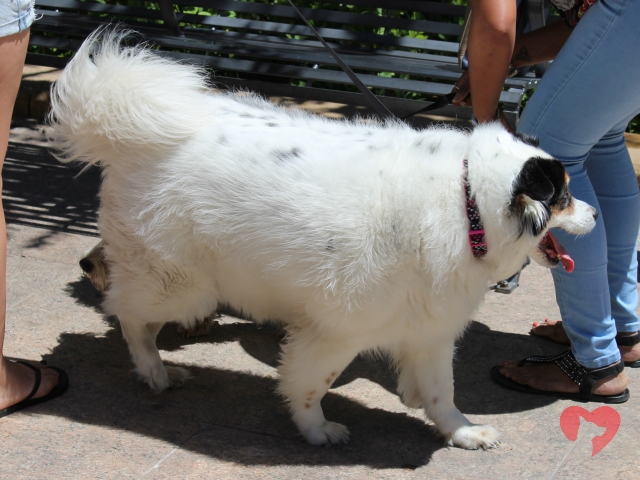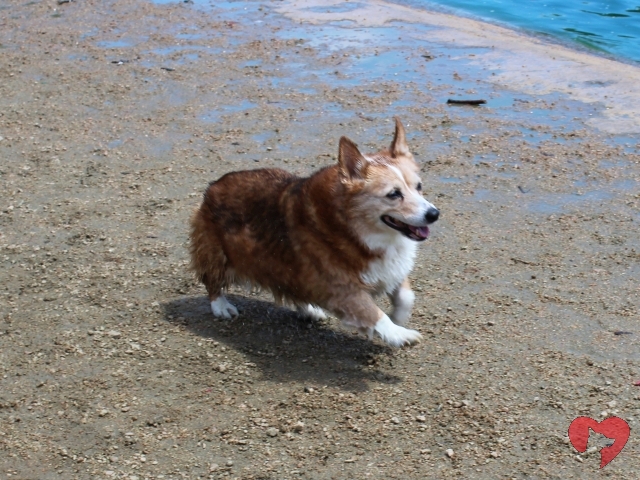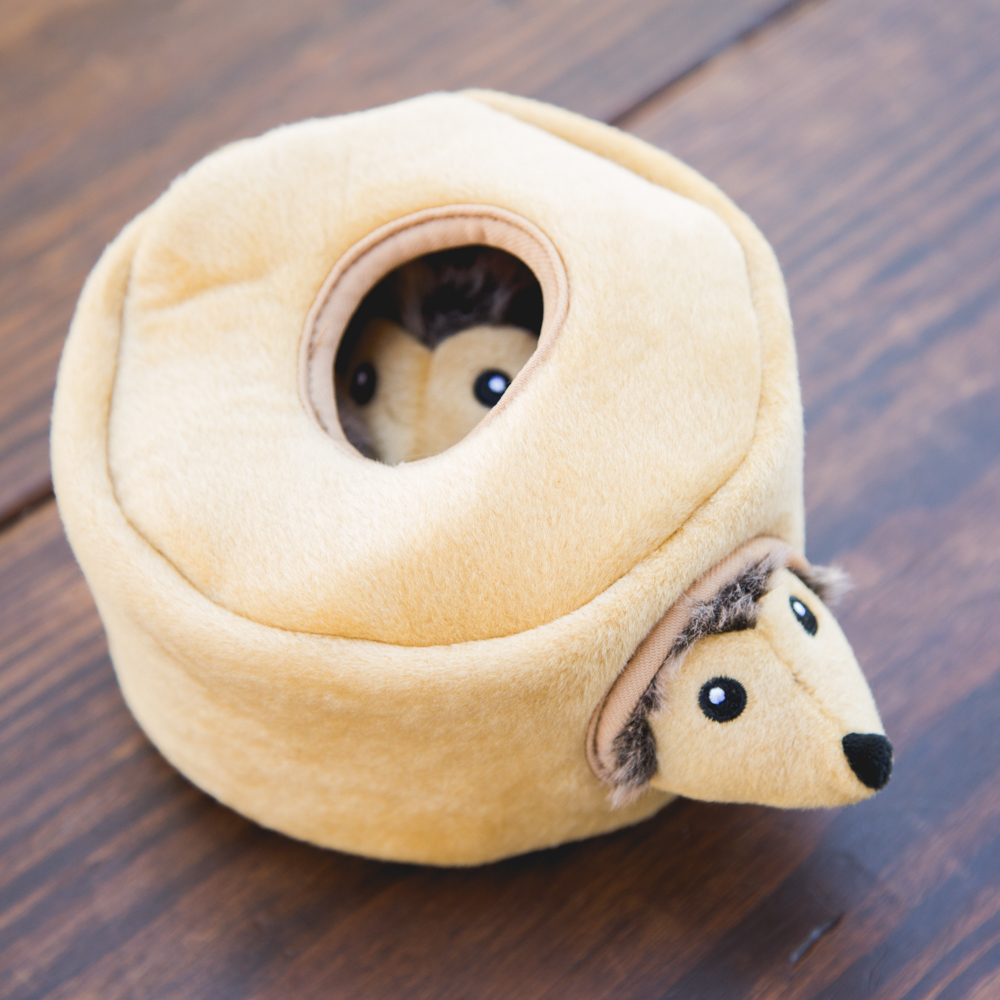As we get older we rest more, exercise less, and our bodies lose shape. It happens to the best of us – our dogs included. Your dog may look comfy in his new, softer body, but that doesn’t mean that he is, and extra weight comes with extra issues.
Dogs who are overweight are more likely to suffer from cardiac disease, diabetes, arthritis and cancer – things that senior dogs are already more at risk for than younger pups. That’s why it’s especially important to keep your older pal trim, active, and healthy.
Your senior dog may not be up for the same activities that kept him fit when he was younger, but there are still plenty of ways to keep his mind and body moving.
1. Take Control Of Your Dog’s Diet

Just like with humans, your dog’s body only burns so many calories a day and his body will store the excess as fat. If you’re filling your dog’s food bowl to the brim and allowing him to access it whenever he likes, you might be contributing to his weight gain. Of course, your dog needs food, but portion control and smart shopping can help him live a healthier life.
Dogs process food and nutrients differently than us, so finding a good diet for your dog can be tricky without the help of a vet. Talk to your veterinarian about your concerns for your dog’s weight and ask them to help you choose a diet that will help your dog shed some pounds without causing him to feel hungry all the time. You can also research brands on DogFoodAdvisor.com for ratings, recall information, and nutritional content, and take that information with you to your vet.
2. Don’t Reward With Food

We may not consider the additional calories that we add to our dog’s daily intake when we reward him, but they definitely count. Everything you feed your dog has some impact on his diet, and it’s important to remember that when we give treats.
Treats don’t always have to be food. Believe it or not, many dogs like being rewarded with praise or affection just as much as they enjoy treats! In a study of 15 dogs, most responded as well to praise as they did to treats, and 30% preferred to be praised. Only two of the fifteen strongly preferred treats.
You may feel like you’re holding out when your dog does something praise-worthy and you don’t hand over a biscuit, but remember that just a scratch behind the ears and a “good boy!” can be just as rewarding for him. But if your pooch is one that’s very food-motivated, consider swapping high-calorie treats for healthier alternatives, like small pieces of carrot or plain chicken.
3. Get Outside

Your senior dog will tire out more quickly than he did when he was younger, but that’s no reason not to exercise. Although he may want to sleep, it’s important to take him out for longer than the time it takes him to do his business. Your dog will need to burn calories to lose weight, and the more he burns, the more weight he’ll lose. Senior dogs who are overweight can benefit from as little as 20 minutes of gentle exercise a day.
Again, this is an area in which you’ll want to consult your veterinarian. Obese dogs and senior dogs are more likely to overheat in hot weather and overexert themselves if you push them. Exercise more rigorus than they’re ready for can be harmful for your dog, and exacerbate joint and heart issues. Walk at a pace that’s comfortable for your dog and take water with you. Start slowly with short walks, and build your pace and duration as your dog is ready to progress. Not only with you both be able to stay in shape, you’ll get to spend time together.
4. Keep Busy Indoors

Losing weight doesn’t have to be all work. Puzzle toys are a great way to stimulate both your dog’s body and mind.
The Hedgehog Hide and Hunt Plush Toy make your dog work for his reward – the cute, squeaky hedgehog hidden in the burrow! This toy is great for any breed, but terriers, who were bred for this kind of work, will especially love it. Playtime indoors is a great way to avoid extreme temperatures outdoors, which can be especially dangerous for senior or obese dogs, and doubly dangerous for dogs who are both.
Your dog relies on you to make the best decisions for him. Keeping his weight under control will not only keep him healthy and happy, but may also help keep him around a little longer.
